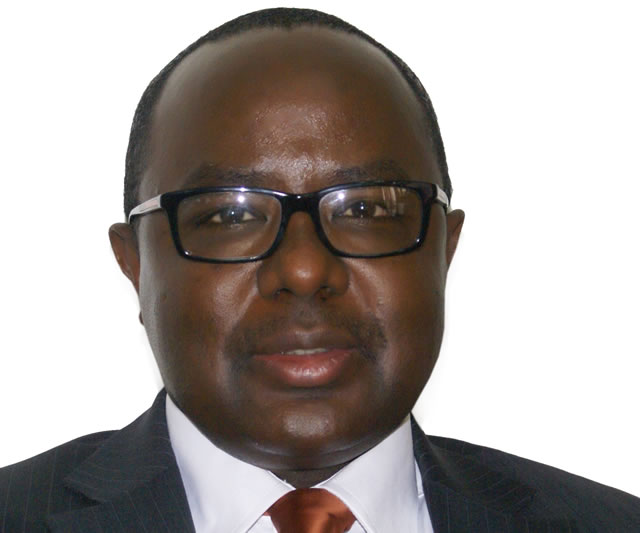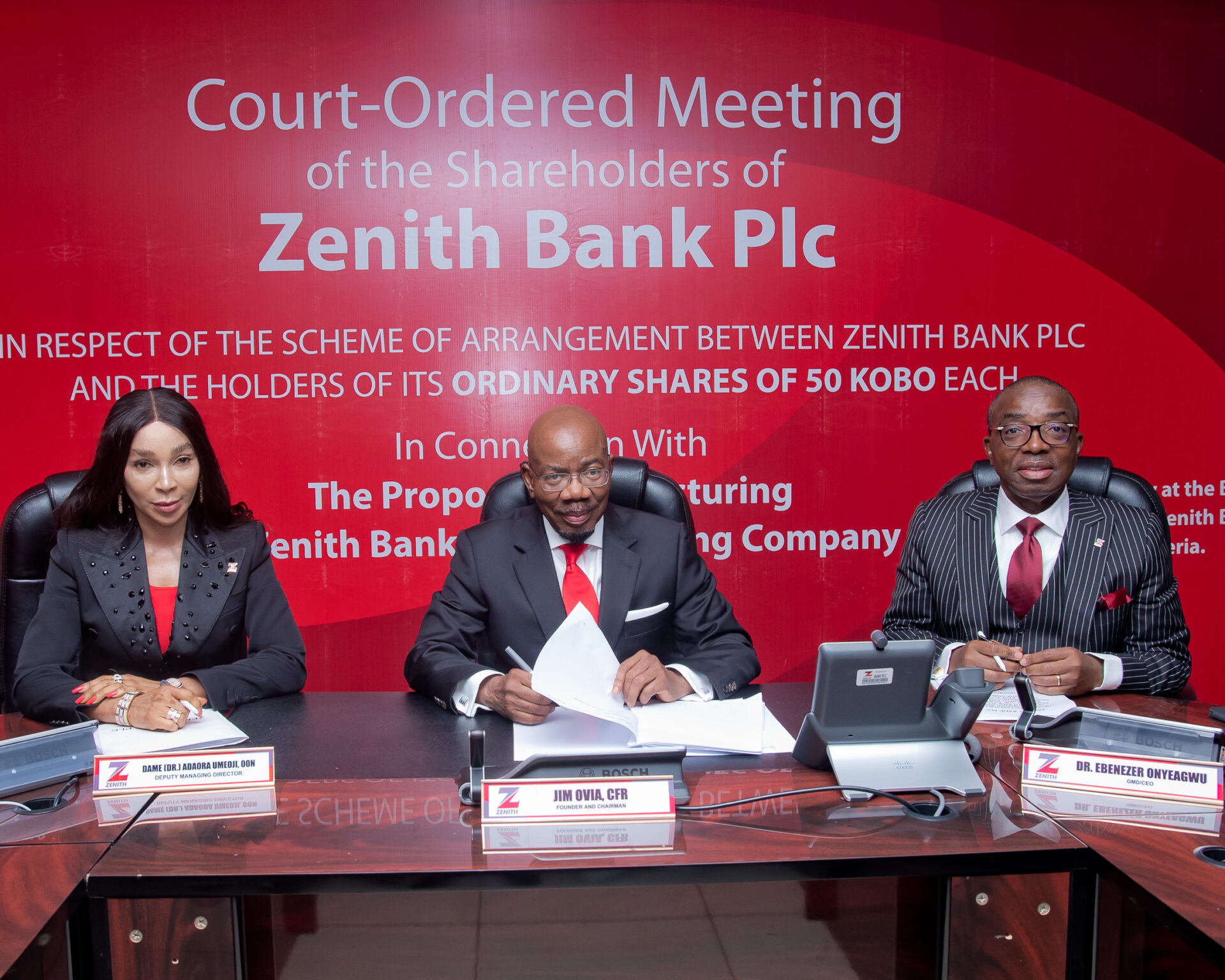- Probe Panel Asks FG to Dismiss Suspended SEC DG, Gwarzo
The Administrative Panel of Inquiry, which was set up in November last year to investigate corruption allegations against the suspended Director-General of the Securities and Exchange Commission, Mr. Mounir Gwarzo, has recommended the sacking of the embattled DG from public service.
The panel, which is headed by the Permanent Secretary, Federal Ministry of Finance, Mahmoud Isa-Dutse, was set up by the Minister of Finance, Mrs. Kemi Adeosun.
In the recommendation, which was sighted by our correspondent in Abuja, the committee also suggested that the suspended DG should refund the sum of N104.85m, which he allegedly approved and received as severance package while still in office.
The panel also recommended that Gwarzo be referred to the Independent Corrupt Practices and other related offences Commission for further investigation of the allegation of using his position as SEC DG to influence the award of contracts to Outbound Investments Limited.
In the report, which has already been submitted to the finance minister, it was recommended that the holding of the position of the DG of SEC as well as a director in two private companies (Medusa Investment Limited and Outbound Investments Limited) was in breach of public service rules 030424 and 030402 and Section 6 of the Investment and Securities Act, 2007.
The panel stated in its report, “Mr. Mounir Gwarzo should be referred to the ICPC for further investigation of the allegation of using his position as director-general to influence the award of contracts to Outbound Investments Limited in view of the provisions of Sections 57 (12) (b) and 58 (5) of the Public Procurement Act, 2007.
“Gwarzo should be dismissed from the public service of the Federal Government, in line with the PSR 030402 (in relation to the allegation on golden handshake), having breached paragraphs 313 and 316(4) of the Financial Regulations (Government Notice No. 219 of October 27, 2009) (engaging in extra-budgetary expenditure without appropriate approval).
“Should be discharged on the allegations of award of contracts to Medusa Investments Limited; award of contracts to other companies as mentioned in paragraph 5.1.1 and to which no relationship with Mr. Mounir Gwarzo was sufficiently established.”
However, the panel recommended that the cases of two management officers of the commission, Mrs. Anastasia Braimoh and Mr. Abdulsalam Naif, be referred to SEC for appropriate disciplinary action in line with the provisions of the staff manual of the commission.
The panel advised the Federal Government to re-orientate public servants to the very fact that the public service rules and financial regulations were ground norms of every government service contract, be it at the federal, state or local government level.
“Accordingly, all government extra-ministerial departments and agencies should be made to understand that the PSR and FR are superior to whatever specific legislation and domestic arrangements that guide their operations, except when such issues are not covered by any provision of the PSR,” it added.
Meanwhile, Adeosun and Gwarzo clashed on Tuesday over the legality of the suspension of the latter by the former.
The minister and Gwarzo had appeared before the House of Representatives Committee on Capital Market and Institutions at the National Assembly in Abuja.
The committee, which is chaired by Mr. Tajudeen Yusuf, is investigating the suspension in a bid to advise the House on how to resolve the dispute.
Adeosun and Gwarzo both justified their positions on the matter as lawmakers grilled them for about two hours.
While the minister insisted she acted right within her powers in order to sustain investors’ confidence in the capital market, Gwarzo argued that his suspension had no basis under any known law in the country.
Gwarzo, who was the first to speak, told the committee that neither the Public Service Rules nor the Investment and Securities Act gave the minister the power to suspend the SEC DG.
He claimed that the real reason for his suspension was the forensic audit SEC was conducting into the operations of Oando Plc.
Gwarzo added that the timing of the suspension and a series of meetings held between him and Adeosun over the Oando case suggested that the oil firm was the real issue and not the allegations of financial impropriety levelled against him.
He stated, “The minister called me to her office and demanded that I should stop the forensic audit of Oando. I asked that she put it in writing, but she called for my resignation instead. She said if I failed to resign, then I would be suspended.
“And I insisted I would not do anything the minister asked me to do. What followed the next day was my suspension.”
Gwarzo admitted that he indeed claimed N104m severance package from SEC, defending the payment as his due, having served as a commissioner for over two years prior to being appointed as the DG.
He informed the panel that SEC’s provisions for entitlements covered the money he was paid.
“Nothing went wrong with my payments. There were payments approved by the Board of SEC before mine. Why did it become necessary for my own to go to the minister for approval?” Gwarzo queried.
He came to the session in company with his lawyer, Mr. James Igwe, SAN.
But, Adeosun, faulting Gwarzo’s submissions, said the suspended DG took several decisions that conflicted with his position.
For instance, she said a petition investigated and found to be true was that Gwarzo, as a public officer, had interests in two private companies.
She noted that one of the companies had business transactions with SEC, including supplying diesel to the agency, while Gwarzo presided over its affairs.
She added that by that act alone, Gwarzo had breached the Public Service Rules and did not deserve to continue to sit as the SEC DG.
The minister recalled how the Whistle-blower Unit of the ministry received “loads of documents” of petitions against Gwarzo in October 2017, which made the ministry to move in by setting up an administrative panel to probe him.
She added, “He was still a director of one of the companies and we found out that there was a conflict in what he told us and the records we got from the Corporate Affairs Commission. He remains a shareholder in Medusa, and his saying that he resigned is not true. The CAC records show otherwise.
“As we were investigating, documents began to miss from SEC. We were compelled to suspend him as a pre-emptive decision to protect the integrity of the capital market.”
The minister dismissed Gwarzo’s allegation that his suspension was linked to the forensic audit of Oando as a deliberate move to divert attention from the real issues.
She added, “We knew he would try to link it to Oando. It is mischievous to link it to Oando. As we speak, the forensic audit is still going on. It has not stopped. If it was about Oando, as he has always claimed, why is the audit still on even after the suspension?
“I gave my support to the audit though he did not inform me beforehand. I gave my approval.”
Adeosun, who denied having any business interests in Oando, also told the committee that she never at any time threaten to sack Gwarzo or demand that he resigned.
“I don’t have any shares in Oando. My family members own no shares there. I repeat again. This is all mischief, linking Oando to this. Gwarzo should address the real issues,” she added.
The committee sought the views of the Director, Legal Services at the ministry, Mr. Christopher Gabriel, on the legality of Adeosun’s action.
Gabriel backed the minister, saying, “There is no contravention of any known statute by the minister on this case; SEC at the moment has no board.
“In the absence of a board, the minister is the board and she will carry out all those functions that a board will ordinarily carry out.”
The session ended without the committee taking any decisions.
However, the chairman of the committee gave an assurance that members would thoroughly investigate the rift and come up with a position in order to safeguard the capital market.


 Forex3 weeks ago
Forex3 weeks ago
 Naira3 weeks ago
Naira3 weeks ago
 Billionaire Watch3 weeks ago
Billionaire Watch3 weeks ago



 Naira3 weeks ago
Naira3 weeks ago






 Naira3 weeks ago
Naira3 weeks ago




 Naira2 weeks ago
Naira2 weeks ago






 Naira2 weeks ago
Naira2 weeks ago




 Naira4 weeks ago
Naira4 weeks ago























